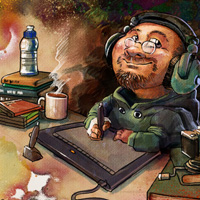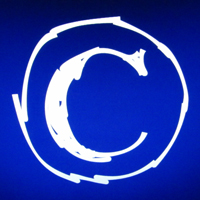- photo contests ▼
- photoshop contests ▼
- Tutorials ▼
- Social ▼Contact options
- Stats ▼Results and stats
- More ▼
- Help ▼Help and rules
- Login
Other Respected Sites:
Understanding Image Types: JPEG and TIFF - Photography Tutorial

Knowing which image type to use ensures you can make the most of your digital photographs. Some image types are best for getting an optimal balance of quality and file size when storing your photos, while other image types enable you to more easily recover from a bad photograph. Countless image formats exist and new ones are always being added; in this section we will focus on options related to the two of the three formats most relevant to digital photography: JPEG and TIFF. The RAW file format is covered in a separate tutorial.
submitted: 5 years and 3915 days ago
submitted: 5 years and 3915 days ago
Understanding Image Noise - Photography Tutorial

"Image noise" is the digital equivalent of film grain for analogue cameras. Alternatively, one can think of it as analogous to the subtle background hiss you may hear from your audio system at full volume. For digital images, this noise appears as random speckles on an otherwise smooth surface and can significantly degrade image quality.
submitted: 5 years and 3915 days ago
submitted: 5 years and 3915 days ago
Understanding Image Posterization - Photography Tutorial

Posterization occurs when an image's apparent bit depth has been decreased so much that it has a visual impact. The term posterization is used because it can influence your photo similar to how the colors may look in a mass-produced poster, where the print process uses a limited number of color inks. This effect ranges from subtle to quite pronounced, although one's tolerance for posterization may vary.
submitted: 5 years and 3915 days ago
submitted: 5 years and 3915 days ago
Fine Art - Photography Tutorial

The article is enhanced with illustrative figures and screen shots, and includes examples of fine art photography from Michael Ezra's portfolio. Whether you are just entering the world of digital photography and needs some tips and advice on how best to post-process your images, or are a seasoned pro, the insights shared here should be helpful with your own digital photography workflow and fine art photography post-processing.
submitted: 5 years and 3895 days ago
submitted: 5 years and 3895 days ago
Top 12 Image Editing Skills Every Photographer Should Know - Photography Tutorial

Before you start editing, make sure that you have a good image work flow. This means saving originals in a separate place to prevent you from damaging or destroying the original image. And get familiar with your program’s UNDO capability – usually the Ctrl-Z key is a shortcut to undo the most recent image change. Don’t forget SaveAs, which allows you to save a copy of the image with another name so you don’t disturb the original.
submitted: 5 years and 3894 days ago
submitted: 5 years and 3894 days ago
Videos:
About Composition - Photography Video Tutorial
Adding Drama to Your Images - Photography Video Tutorial

Today we're going to cover the process we use to add drama to an image. By combining HDR, RAW, and B&W images together in Photoshop we can achieve some very unique and stunning effects.
While not applicable to all instances this technique is a great way to really set your work apart.
submitted: 5 years and 3438 days ago
While not applicable to all instances this technique is a great way to really set your work apart.
submitted: 5 years and 3438 days ago
Using an Image to Create a Backdrop - Photography Video Tutorial

In the age of Photoshop some good old techniques are being forgotten. Back in the day, snow or beach scenes where created right inside the studios. Photographers also traveled more often to shoot at exotic locations. Nowadays, most of that magic is done in Photoshop by combining studio shot images with stock photos.
Sometimes using the technique demonstrated in the video can save you time and will help create a rewarding image.
Watch this photography tutorial video to learn how to create a realistic backdrop using photograph or a painting.
submitted: 5 years and 3395 days ago
Sometimes using the technique demonstrated in the video can save you time and will help create a rewarding image.
Watch this photography tutorial video to learn how to create a realistic backdrop using photograph or a painting.
submitted: 5 years and 3395 days ago







